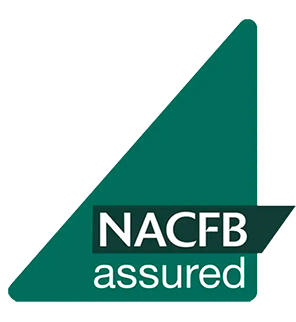Borrow up to
£10M
Apply in Under
1 Minute
Search Over
250+ Loans
Decisions in under
60 Mins*
There are a number of key considerations that can impact the security and viability of offering a bridging loan:
There are a number of key considerations that can impact the security and viability of offering a bridging loan:
You may be considering applying for a bridging loan to finance a property development project or purchase. However, before a lender can approve a bridging loan, they will need to conduct a thorough assessment of the borrower's ability to repay the loan and the security of the loan.
Below are some of the main factors that an underwriter will consider when assessing the security of providing a bridging loan to a borrower, both for a first and second charge bridging loan.
Loan to Value Ratio (LTV):
The Loan to Value ratio (LTV) is the proportion of the property's value that the lender is willing to lend to the borrower. For a bridging loan, the LTV is usually between 65% and 80% for a first charge loan, and between 50% and 70% for a second charge loan. The LTV is important because it determines the amount of risk the lender is taking on, and a higher LTV may result in a higher interest rate.
For example, if the property is valued at $500,000, the lender may be willing to lend $350,000 for a first charge loan (70% LTV) and $175,000 for a second charge loan (35% LTV).
Exit strategy:
The exit strategy is the plan that the borrower has in place to repay the bridging loan when it matures. The lender will want to ensure that the borrower has a viable exit strategy that is realistic and achievable. Common exit strategies include refinancing with a traditional mortgage, selling the property, or completing the development and selling or renting out the completed units.
For example, if a developer is using a bridging loan to complete a development project, the lender will want to see evidence of pre-sales or a refinancing plan in place to repay the loan.
Credit history:
The lender will also consider the borrower's credit history to assess their ability to repay the loan. The lender will look at the borrower's credit score, credit history, and any outstanding debts or liabilities.
For example, if the borrower has a history of late payments or defaults, the lender may charge a higher interest rate to compensate for the increased risk.
Property valuation:
The lender will need to conduct a thorough valuation of the property to assess its market value and the security of the loan. The lender may use an independent surveyor to conduct the valuation and will consider factors such as the location, condition, and potential for development or growth in the property's value.
For example, if the property is in a desirable location with good potential for growth, the lender may be more willing to lend a higher LTV.
Income and affordability:
For a first charge bridging loan, the lender may also consider the borrower's income and affordability to ensure they can afford to repay the loan. The lender will look at the borrower's income, expenses, and other financial commitments to determine their ability to repay the loan.
For example, if the borrower has a high income and low expenses, the lender may be more willing to lend a higher amount at a lower interest rate.
Experience and track record:
For an experienced developer or borrower, the underwriter may also consider their track record and experience in property development or investment. This can include their experience with similar projects, their success rate in completing projects on time and within budget, and their overall financial stability.
Security or collateral:
The lender may also consider the security or collateral offered by the borrower. This can include additional properties, personal assets, or guarantees provided by third parties. The more security or collateral provided, the lower the risk for the lender, and the more willing they may be to lend at a higher LTV.
Market conditions:
The underwriter may also consider the current market conditions, such as the state of the property market, interest rates, and economic stability. This can impact the viability and profitability of the borrower's project, as well as the likelihood of successful exit strategies.
Legal considerations:
The underwriter may also consider legal considerations, such as the title and ownership of the property, any existing liens or encumbrances, and any legal disputes or issues that may impact the security of the loan.
Fees and charges:
The underwriter will also assess the fees and charges associated with the bridging loan, such as arrangement fees, valuation fees, legal fees, and early repayment fees. These fees can impact the overall cost of the loan and the borrower's ability to repay.
Why Property Finance Direct?
Whole of Market
Get Clear & Transparent Prices: our experts can scour the whole of the market to ensure you receive the best rates available tailored to your individual needs
Deals in Minutes
Applying for a loan with us takes minutes: simply enter your details and start receiving deals in principle in as little as 60 minutes*
Real People
When you call, you'll get to speak to our team of financial professionals direct who have an understanding of you and your needs – we don’t believe in red tape
Fair Decisions
The borrower is important to us not just your credit score, so irrespective of your investor or developer status all loans applications are comprehensive, quick and fair.
* More info speed of decisions & loans offered is indicative, based on a case by case basis & will be confirmed at lender underwriting
Award Winning Broker Network Members
Award Winning Broker Network Members









0330 174 4606

Copyright © All Rights Reserved 2024 | Property Finance Direct
Property Finance Direct is a trading style of Seek4 Ltd which is an appointed representative of Commercial Finance Brokers UK Limited which is authorised and regulated by the Financial Conduct Authority (FRN 736199) for the purpose of consumer credit business. Commercial Finance Brokers UK Limited is registered in England & Wales under company registration number 06353973. We are a credit broker, not a lender. We work with the whole of market and may earn a commission from the lenders, this amount varies between lenders.
Warning: Late repayment can cause you serious money problems. For help, visit: www.moneyhelper.org.uk.


 Your Quote
Your Quote